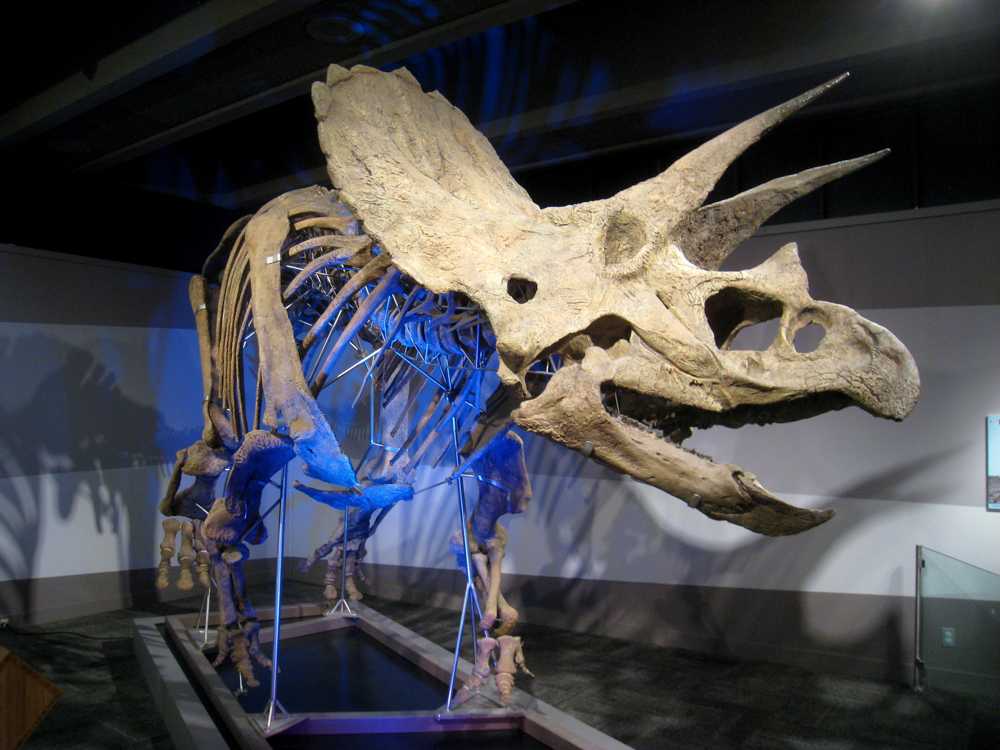
Whether it’s your first time in the city or you’re a long-time student looking to explore, Boston has a number of educationally enriching museums to visit, ranging from children’s museums to expansive art collections. But if you love science, Boston has numerous science museums for people of all ages. Here are some you should check out.
5. Warren Anatomical Museum
For those interested in health sciences, the Warren Anatomical Museum is a great place to visit. Located on Harvard University’s campus, the museum is one of the last surviving anatomy and pathology museums collections in the United States.
The museum, which reopens this fall, houses collections and exhibits that furthered the advancement of anatomical sciences. For example, one exhibit is dedicated to Phineas Gage, a famous neurology case that allowed scientists to understand that different parts of the brain controlled different functions of the body.
Gage was in an accident where an iron rod went through his frontal lobe and blinded him for life. He survived, but his personality was forever altered.
The skull of Gage is at the museum to this day.
4. Harvard Museum of Natural History
Animal lovers and geological aficionados would enjoy the Harvard Museum of Natural History, which showcases different types of wildlife found all over the world.
Featuring 20 diverse exhibits ranging from an exhibit on cenozoic mammals to an exhibit on New England Forests, this museum showcases the development of the world from its infancy to today and changes to the planet that we can currently observe.
Open from 9 a.m. to 5 p.m. everyday, the Harvard Natural History Museum has free admission for Harvard ID holders, $10 for non-Harvard students with identification and children, $13 for seniors, and $15 for adults.
3. Arnold Arboretum
If you like nature, be sure to visit the Arnold Arboretum. Sprawling across over 281 acres, this “living museum” on Harvard’s campus is one of the world’s most expansive and comprehensive collections of plants from Eastern North America and Eastern Asia.
The Arboretum offers virtual walks, guided tours, a mobile app, and digital learning resources. Additionally, they actively conduct research and horticulture — the practice of garden maintenance — to promote the botanical diversity found all over the world.
Admission to the Arboretum is always free and hours to the grounds are sunrise to sunset.
2. EcoTarium
Whether the weather is good or bad, check out the EcoTarium in Worcester. It offers three floors of indoor exhibits and nearly 45 acres of outdoor forest and meadow nature trails. From May to October, they also offer a train ride through the grounds of the museum.
One indoor exhibit features the science of how cities are organized and how their arrangement impacts people, civic life, animals, and the environment. Another is about how water shapes the planet. Outside, you can see wild cats and other native animals rarely ever seen in the wild, and an impressive array of otters, owls, and turtles.
Hours are 10 a.m. to 5 p.m. Tuesdays through Sundays. Tickets are $19 for adults, $15 for senior citizens, $14 for children and students with identification.
1. Museum of Science
If you don’t have any specific interest in a field of science, there’s something for everyone at the Boston Museum of Science.
With over 35 exhibits, four omnidirectional films, 11 planetarium shows, three 4D films and eight live presentations, the museum is a massive center for scientific enrichment in Boston.
Permanent exhibits include exhibits on vaccine health, the arctic landscape, human life, fossils, New England habitats and birds as well as the Charles River, which the museum borders.
On the roof, you can visit the Boston branch of the world-renowned Hayden Planetarium. Tickets are $29 for adults, $24 for children ages three to 11, $25 for seniors, and free for children under three.











































































































